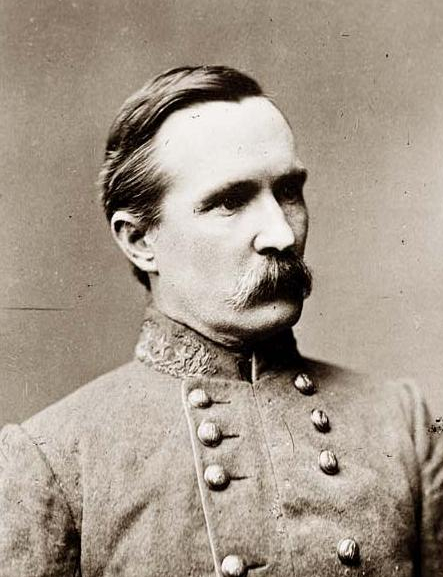Henry Heth, Lee's ‘bad luck’ General
A new general for a new division
On May 27th 1863, Jefferson Davis formally agreed the promotion of Brigadier General Henry Heth (Image 1) to the rank of major general and appointed him to the command of one of the nine infantry divisions of the Army of Northern Virginia. Heth was something of an unknown quantity within that army. He had only joined it as a brigadier three months earlier, and his promotion was due more to a combination of seniority of rank and the favour of the army commander than to any reputation earned in the field.
Earlier in the war, Heth had served with Lee in western Virginia and clearly made a good impression. “Harry” was one of the few officers Lee called by his Christian name, and, when a vacancy occurred for a brigadier in A.P.Hill's division, Lee put himself out to obtain Heth's services.
In May 1863, Heth was 37 years old, fit, handsome, clean shaven except for a moustache, and “socially captivating”. His earlier career had already revealed a temperament likely to appeal to Lee. He was a Virginian gentleman of impeccable lineage with a well deserved reputation as a horseman and crack shot. As an Indian fighter on the plains he had thrived in conditions that had broken the spirits of some of his contemporaries. He was easy to get along with, not overly reflective, and capable of making the best of a bad situation. True, there was a side to Heth that gave some cause for concern. As a cadet at West Point his showing at subjects in which he had no interest was, by his own admission, “abominable”, and his ability to enjoy himself at the expense of the regulations was remarkable. In his four years there he collected a grand total of 683 demerits, and ranked bottom but one in conduct when he graduated. But none of this, in Lee's opinion, could outweigh Heth's most obvious military virtue, his bold and aggressive approach to problems. Given the slightest encouragement Heth would attack, and in this he was Lee's kind of soldier. As Heth later noted:
“No one ever went to General Lee and suggested an aggressive movement who was not listened to attentively, and if convinced that there was a remote chance of striking a blow, was not permitted to make the attempt.”
Heth's boldness had not always been rewarded by success, but if the commanding general suspected his protégé of being something of a military gambler, lacking the judgement required for divisional command, he kept such thoughts to himself. After all, Lee knew a bit about military gambling himself.
The division Heth assumed command of was a new creation. It contained many contrasts. Two of its brigades were tiny veteran units still recovering from heavy casualties at Chancellorsville. (Of these, one was commanded by the formidable Brigadier General James J. Archer, the other by its incompetent senior colonel, John M. Brockenbrough). A third brigade was a mixture of two veteran regiments and two new ones. The two veteran regiments, the 2nd and 11th Mississippi, were amongst the finest in the army. This third brigade was led by newly appointed Brigadier General Joseph R. Davis, whose sole qualification for command seems to have been that he was the President's nephew. The fourth brigade was also new to the army and was larger than any two of the others put together; indeed, it was the largest brigade under Lee's command. Its finest regiment, the 26th N.C., formerly commanded by Colonel (now Governor) Zebulon Vance, was only slightly smaller than Brockenbrough's entire brigade. The fourth brigade's commander was the highly educated and intellectual J. Johnston Pettigrew, who had fought in only one major engagement. All in all, the division was the least cohesive in the army. Its leader, staff and senior brigade commanders were all new to each other. There was a good chance that the veteran regiments’ behaviour under fire would be quite different from that of their untried colleagues. The extreme variation in the size of the brigades, and in the experience and competence of their commanders, was bound to make response to the pressures of the battlefield difficult. Heth's problems would have been sufficient to daunt the most experienced divisional commander in the army. His chief consolation must have been that the men in the ranks were some of the finest fighting material ever assembled. He must have hoped that with time and luck he could mould his troops into a force to be reckoned with. Unfortunately, within a tragically short period his division suffered a series of disasters that effectively destroyed his reputation.
